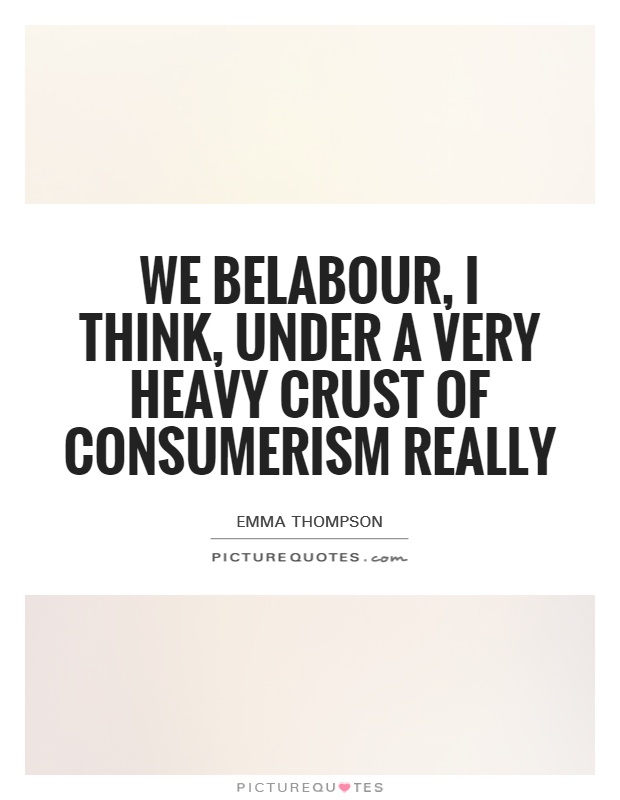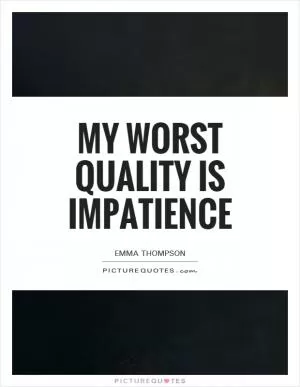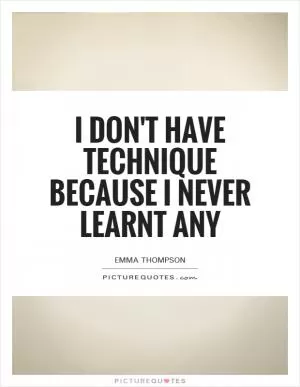We belabour, I think, under a very heavy crust of consumerism really

We belabour, I think, under a very heavy crust of consumerism really
Emma Thompson, the renowned British actress and activist, has never been one to shy away from speaking her mind on important issues. In a recent interview, she made a thought-provoking statement about consumerism, saying, “We belabour, I think, under a very heavy crust of consumerism really.” This statement reflects Thompson’s deep concern about the negative impact of consumerism on society and the environment.Consumerism, the relentless pursuit of material possessions and the belief that happiness can be bought, has become a dominant force in modern society. From the constant bombardment of advertisements to the pressure to keep up with the latest trends, consumerism has infiltrated every aspect of our lives. Thompson’s use of the word “belabour” suggests that this obsession with consumerism has become excessive and burdensome, weighing us down with unnecessary wants and desires.
Thompson’s critique of consumerism is particularly relevant in today’s world, where the effects of overconsumption are becoming increasingly apparent. The rise of fast fashion has led to environmental degradation and exploitation of workers in developing countries. The constant need to upgrade to the newest technology has created a culture of planned obsolescence, where products are designed to break down quickly and be replaced, leading to massive amounts of electronic waste.
Thompson’s statement also highlights the emptiness of consumerism, as the pursuit of material possessions often fails to bring true happiness and fulfillment. In a society that equates success with wealth and possessions, many people find themselves trapped in a cycle of endless consumption, always seeking the next big purchase to fill a void that can never be satisfied by material goods.
As a passionate advocate for social and environmental justice, Emma Thompson’s words serve as a powerful reminder of the need to challenge the status quo and reevaluate our priorities. By questioning the pervasive influence of consumerism in our lives, we can begin to break free from its grip and work towards a more sustainable and equitable future.












 Friendship Quotes
Friendship Quotes Love Quotes
Love Quotes Life Quotes
Life Quotes Funny Quotes
Funny Quotes Motivational Quotes
Motivational Quotes Inspirational Quotes
Inspirational Quotes